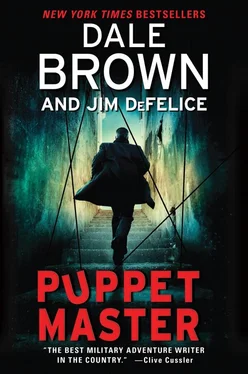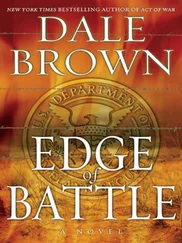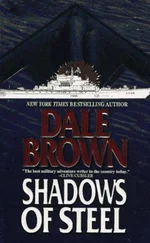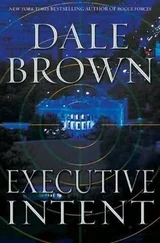An investment? Or just a good deed?
What would Sister Rose Marie say?
Kiss it up to God, Louis.
Easy for a nun to say. They kissed everything up to God.
Jenkins and the U.S. attorney had gone home, as had his attorney. Massina, Chelsea, Borya, and her babysitter, who looked as if she’d been hit by a car, were the only ones in the conference room adjoining his office. Together, they’d finished off nearly two pizzas — one thing he could say for the kid, she could eat. The remains of the second pizza were in the box at the far end of the table.
He cleared his throat. “This is what I think,” he told her. “When your father comes home, he will review the arrangement my lawyer has worked out. You will give all of the money back.”
The girl nodded.
“The money that you’ve spent, you’ll pay off,” Massina continued, “by working here. Assuming your father is OK with that.”
“How much will I get paid?” she asked.
“We pay our interns fifteen dollars an hour.” It was a made-up figure — they had no interns. “You will work directly under Ms. Goodman’s supervision. If there is any hint of illegal activity, you will be fired. You understand that?”
Borya nodded.
“If your schoolwork slips, you will be laid off.”
She nodded again.
“You are a very lucky girl,” added Massina. “Ms. Goodman believes in you. As for me — the jury is out.”
“What does that mean?” asked Borya.
“It means that you have to prove yourself,” said Chelsea. “You have to be on your best behavior.”
“And you’ll find my dad?”
“We’re working on that,” said Massina.
* * *
Chelsea wasn’t sure whether it was the fatigue or the reality of what she had agreed to do. Whichever, she felt as if an immense weight of iron had settled onto her shoulders.
Borya was clearly worried about her father. When he turned out to be fine — which Jenkins said was surely the case, after checking with his superiors — how would Borya react? Would she renege on the whole deal?
Then she’d go to jail. Juvenile probably, according to the lawyer, though there was always a chance she could be prosecuted as an adult.
That would be a tremendous waste.
“Mr. Bozzone will drive you home,” Massina told Borya and Martyak. “He or someone on his staff will stay at your house until your father comes home.”
“I think we’ll be OK,” said Martyak.
“No. I want someone there,” said Massina. He got up. “We’re done here. Chelsea, can I see you for a moment in my office?”
Chelsea started to say good-bye to Borya. The girl hugged her, pressing tight against her chest.
“It’ll be all right,” Chelsea told her. “I promise.”
Don’t make promises you can’t keep!
She walked out with them to the hallway, where Beefy was waiting. Then she went to Massina’s office and knocked on the door.
“Come,” he said from inside.
He was sitting at his desk, thinking about something, hand supporting his chin.
“I know I have a lot to do,” Chelsea started. “I’ll make up for it tomorrow.”
“No one works on Sunday,” he said. “And relax. Peter is on schedule. I was impressed with the demonstration today. The bot will be fine for the demos.”
“Thank you.”
“You’ll have to get the ATM proposals into shape for a new team to take over,” he told her. “Make that your priority Monday.”
“Right, boss.”
He frowned. “So you trust her?”
“I think so.”
“I suppose I should ask you what your confidence level is,” he said. There was the slightest hint of wryness in his voice — the term was one they used when assessing the likely outcome of an experiment. “Have a good night.”
Starobeshevskaya village — first light
The hotel Dan and the butcher’s brother found in Starobeshevskaya was a scurvy place, filled with rats and smelling of stale cigarette smoke. Tolevi managed a few hours of sleep on sheets that looked as if they hadn’t been washed in months. Between that and the aftereffects of the scotch he’d had to consume with the deputy mayor, he felt as if he’d been dragged through a field at the back of a bulldozer, then run over a few times.
But there was work to be done. And now with the lay of the land exposed, he felt energized. He went downstairs and found Dan and the butcher’s brother sitting in the hotel’s small dining area, waiting for food.
“We’re getting eggs,” said Dan in his accented Ukrainian.
The kitchen was through a door to the left. Tolevi could see an old woman working at a stove. She was wearing a housedress; her gray hair was tied in a long braid that reached halfway down her back.
“I wouldn’t trust it,” Tolevi told them. “How’s the coffee?”
“Terrible.”
At that, he smiled.
The old woman walked out, wiping her hands on a towel. “For breakfast?”
“I’ll have some coffee,” he told her.
“Yes, yes. And what else?”
“Just that.”
“You must eat. You are skin and bones.”
“Just coffee. Where do you get your coffee?” he asked.
“Ahhh. Our troubles! We once had the finest coffee in the world. Now look at us. Nowhere can we find any that is good. We buy from Russia.”
She spit, shook her head, then went back to the kitchen.
“She’s right,” said the butcher’s brother. “This is terrible.”
“Opportunity knocks,” said Tolevi. “In the meantime, a full agenda today. Tell her I’ll take a rain check.”
“What are we doing?” asked Dan, starting to rise.
“You, not a thing. I have to talk to some people.”
“You need backup.”
“No, I don’t,” Tolevi told him. “Let me do what I do.”
* * *
Ten minutes later, Tolevi pushed a business card across the desk of the young man sitting at the entrance to the deputy mayor’s office. Though he was already losing his hair, the young man couldn’t have been a day past twenty-one. His face was a blotch of pimples, which ranged in color from bright pink to crusty red, and in size from microdots to a jagged mass about the size of an American dime. The latter had the misfortune of sitting on the young man’s forehead and was a great distraction as Tolevi explained that he had come to talk business with the kid’s boss.
“You’re far too early,” he said, studying Tolevi’s card. “He is never here before noon.”
“He told me eight.”
“Ha. You can never trust what he says after five.”
Five drinks or five o’clock? Tolevi wondered.
“We were going to the prison to visit the warden,” he told the young man. “Can you arrange that?”
“I am not sure.”
“Try. It has to do with a business deal the warden may be interested in.”
“It wouldn’t have been the warden. The warden is in Donetsk.”
“Who would it be then?”
The young man simply frowned and picked up the phone. Tolevi listened as he spoke to his counterpart at the prison.
“Olga Uvenski will see you in a half hour,” announced the aide. “If you leave now, you may get there in time. Security takes a while.”
It did, though not because it was thorough, which it was. The problem was that Tolevi had to run through the gamut of pat downs and metal detectors three different times, and more importantly had to be escorted from each by different guards, each of whom could be summoned only after a successful search. The guards took their time coming, responding from somewhere deep inside the complex — a cave perhaps, as they looked like Neanderthals and smelled not a little like sewage.
Читать дальше












